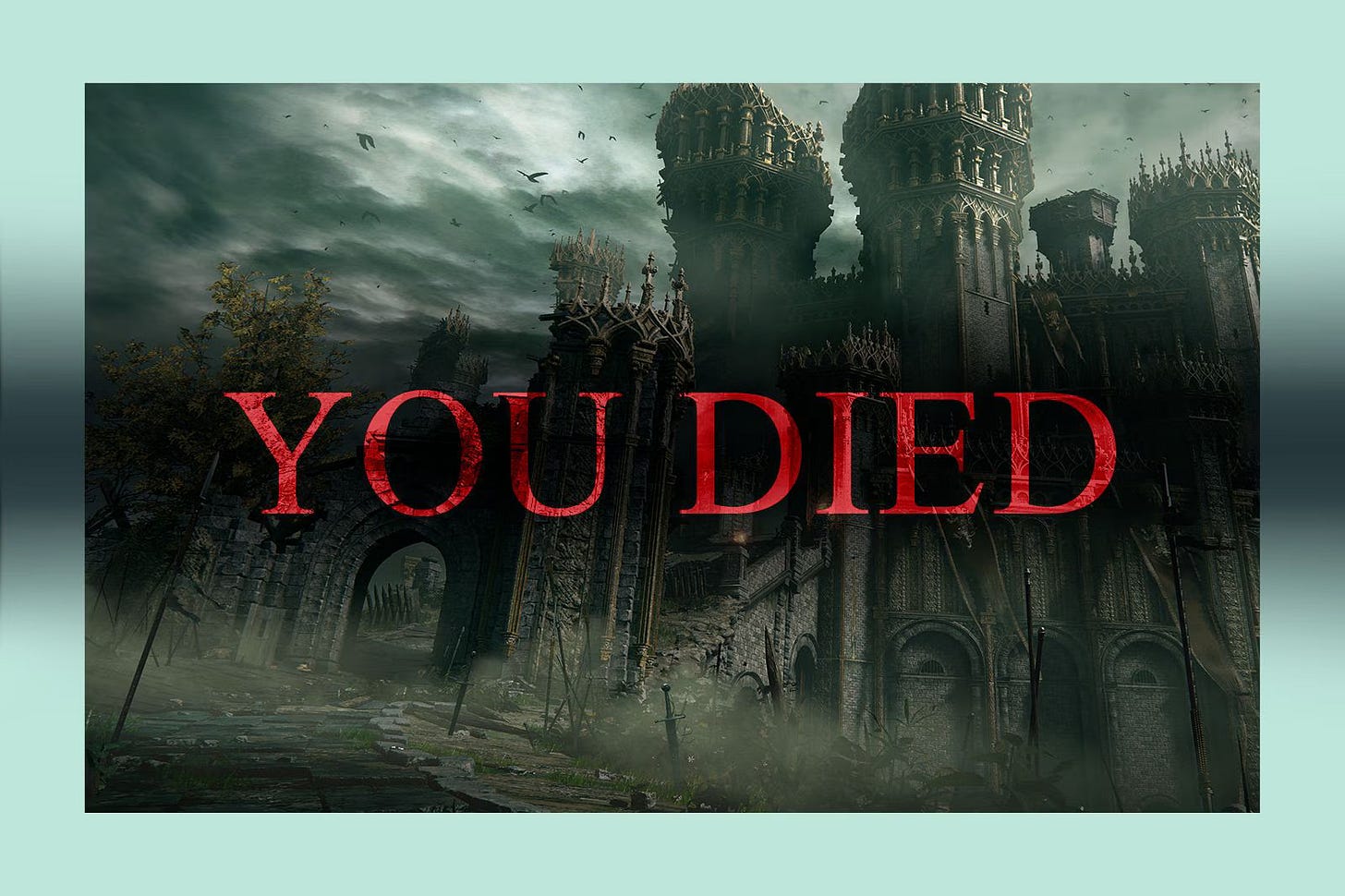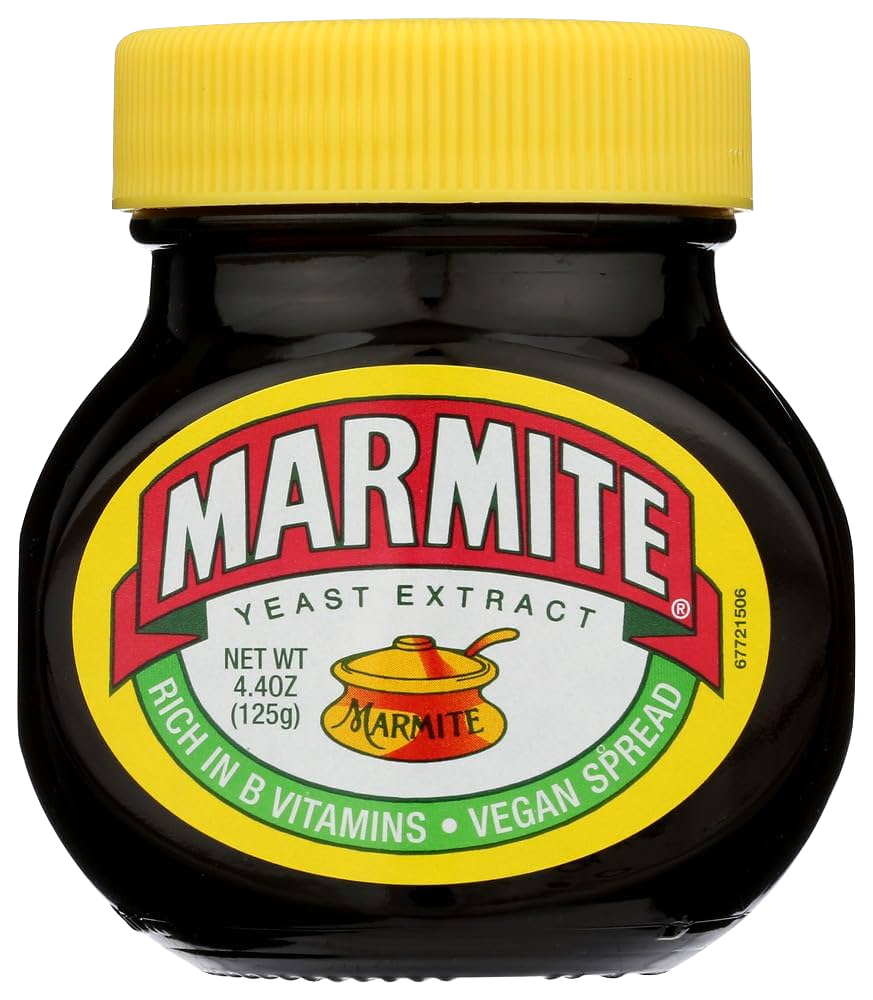Why the best products tell most people to f*** off
The counterintuitive math of building for your haters.
Elden Ring sold 20 million copies by telling most gamers they weren't good enough to play it.
No difficulty slider. No hand-holding tutorials. Few concessions to "accessibility." Just a brutally difficult game that actively punishes you for not paying attention. The kind of game that makes you want to throw your controller through the screen.
And yet it became 2022's biggest hit.
This shouldn't work. Every product manager's instinct, every MBA framework, every venture partner's pattern recognition says you should reduce friction, broaden your funnel, make things easier. Sand down the rough edges. Maximize your TAM.
But when you try to build something for everyone, you build something for no one.
The art of the trade-off
When you finally beat a boss after 50 straight deaths, something magical happens. The frustration of those 49 failures doesn't just disappear - it transforms into one of the most powerful feelings in gaming: earned mastery. That moment of triumph feels so good precisely because you paid for it in blood.
This is the trade-off at the heart of great product design. By deliberately excluding players who want a casual experience, FromSoftware can deliver peak emotional moments that are impossible in more accessible games. You can't have the high without the low.
A game with a difficulty slider can never deliver that feeling. Not because it's technically inferior, but because when victory is guaranteed, it's meaningless.
The Marmite principle
There's a British spread called Marmite that’s made from yeast extract. It overwhelms your tastebuds with salt and umami and I love it. My wife finds it revolting.
Their tagline isn't "Pretty good on toast." It's "Love it or hate it."
They literally advertise that half their potential customers will find their product disgusting. And they've been doing it successfully for over a century.
This is product-market fit at its purest: build something so specific that the people who get it can't imagine living without it, even if that means everyone else thinks you're insane.
Build for believers, not browsers
The best founders I know are all making brutal trade-offs that create enemies.
Linear built issue tracking for people who care more about velocity than customization. No custom fields. No complex workflow configuration. Just ruthlessly fast, keyboard-first, and deliberately constrained. The Jira power users who need seventeen custom statuses? Hate it. Meanwhile, Linear's users ship faster than everyone else because the tool refuses to let them overthink their process.
Owner tells restaurant owners they can't customize their own websites. Want to move that button? Too bad. Want a different font? Nope. They've tested these layouts on thousands of restaurants and know what converts.
Superposition (one of our portfolio companies) is building AI-powered recruiting software that encodes founder Edmund Cuthbert's specific, battle-tested approach to hiring. After seven years as a recruiter, he knows what works. Traditional recruiters who want infinite customization might rage against it. Founders who just want to hire great engineers fast become evangelists.
Notice the pattern? Each of these products makes an explicit trade: we will serve this specific group extraordinarily well, and we accept that means actively repelling everyone else.
Why polarization pays
In 2024, over 19,000 games launched on Steam. The year before? 14,000. The year before that? 12,000.
The same tsunami is hitting every category. There are 200 project management tools. 500 note-taking apps. A thousand AI writing assistants.
When there's infinite choice, being "pretty good" is a death sentence.
The median game on Steam sells 500 copies. The median SaaS product never breaks $10K MRR. They die not because they're bad, but because they're forgettable. They tried so hard not to offend anyone that they failed to delight anyone.
Meanwhile, products with sharp edges - products that actively repel certain users -create something more valuable than broad appeal: they create identity.
When you beat Malenia after dying 100 times, you don't just feel satisfaction. You feel transformed. You ARE an Elden Ring player now. And identities are viral - we can't help but signal them to others.
FromSoft doesn't make games for everyone. They make games for people who get pleasure from mastery that is forged through suffering. That's maybe 5% of the total market. But that 5% will buy every single game they make, at full price, on day one, tell everyone they know about it, and spend hundreds of hours creating content about it.
5% of people who absolutely love you is worth more than 50% who think you're fine.
The founder's playbook for polarization
Here's how to do this:
1. Define your trade-offs explicitly: Stop asking "how can we serve more users?" Start asking "what are we willing to sacrifice to serve our core users better?" Write these trade-offs down. Make them public. Let them repel the wrong people.
2. Make your product a filter: Your product should actively reject people who aren't right for it. Raya requires an application and approval from a committee. Most people get rejected. This exclusivity is part of the value proposition.
3. Turn your constraints into your marketing: When someone complains that your product is "too hard" or "too opinionated" or "too expensive," screenshot it. Your true fans will rally to defend you, creating more authentic energy than any ad campaign.
4. Measure depth, not width: Stop looking at your total user count. Start measuring: How many people would be genuinely devastated if your product disappeared tomorrow? If that number isn't growing, you're trying to please too many people.
5. Double down on what makes you weird: Whatever makes certain people uncomfortable about your product - that's probably your biggest asset. Don't sand it down. Sharpen it.
The courage to exclude
Every founder's instinct is to be loved. We want everyone to use our product. We want universal validation.
But in a world of infinite abundance, the scarcest resource isn't users or revenue or even attention. It's giving a shit.
People only care about products that stand for something. And you can't stand for something without standing against something else.
So make your trade-offs. Pick your tribe. Build something that your competitors' users will hate, because it means your users will defend it with their lives.
The question isn't whether your product is good enough. The question is whether it's specific enough.
Because being hated by the right people is a sign you're onto something great.
Are you building something worth hating? We should talk.



